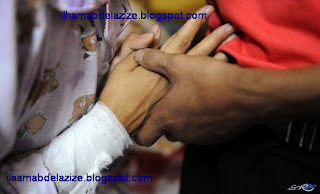The world's largest women-only university is being built in
Saudi Arabia; with a campus that will cover 8m square metres and
accommodate 40,000 students.
Due to open in 2010, the Princess
Noura bint Abdulrahman University, on the outskirts of Riyadh, will
offer courses in subjects that Saudi women find difficult to study at
universities where gender segregation is enforced.
It will have a
library, conference centres, 15 academic faculties, laboratories and a
700-bed hospital. There will be facilities for research into
nanotechnology, bio-sciences and information technology.
At the
foundation-laying ceremony last week, which was attended by King
Abdullah, the finance minister, Ibrahim Al-Assaf, told reporters the
site would include housing for university staff, mosques, a school, a
kindergarten and theme parks.
Assaf described the project as a
"milestone" in the kingdom's history. The higher education minister,
Khaled al-Anqari, added: "The king's presence shows his generous support
for women's empowerment and his keen desire to promote higher
education."
This year Human Rights Watch accused the Saudi
government of stopping women from enjoying their basic rights because
they must often obtain permission from a guardian - a father, husband or
son - to work, travel, study, marry or even access healthcare.
In
a 50-page report, Perpetual Minors: Human Rights Abuses Stemming from
Male Guardianship and Sex Segregation in Saudi Arabia, researchers drew
on more than 100 interviews with Saudi women to document the effects of
discriminatory policies. The findings showed that the need fort
women-only spaces was a disincentive to hiring female employees and that
female students were often relegated to unequal facilities.
One
researcher, Farida Deif, told the Guardian the university would provide
better education and employment opportunities.
"This university
could be a very good thing if it had colleges offering instruction in
engineering, media or law. There are already colleges with nursing and
teaching disciplines. These areas are saturated and perpetuate specific
gender roles.
"In terms of female education, the Saudi government
has made great progress. Every statistic we've seen shows more enrolment
in secondary and university education."
The country still has the
lowest female employment level in the world. Unesco figures show that
women make up 58% of the total Saudi student population, but only 16% of
the workforce.
Segregation and the state policy of male
guardianship mean women can only work in all-female environments,
normally schools and hospitals. Women can lose their jobs if a male
guardian informs the employer he wishes her to leave.
It is
unclear whether the university will have halls of residence. Women do
not normally leave home before marriage and would not usually be
permitted to move away in order to study. Those women who do live on
campus encounter difficulties and constraints.
In the course of
her research, Deif spoke to medical students in Dammam, where they
stayed in dormitories. "They were severely restricted in terms of
mobility and activity. They didn't have the power to leave the
dormitory. It was a very closed environment."
No information is
available on how students will travel to the university. Women are
barred from driving and public transport is not an option because of
segregation. Women rely on a male guardian or privately hired driver.
Government
officials stressed the university's green credentials. Around 40,000
square metres of solar panelling will provide 16% of the campus's
heating and 18% of the power required for air-conditioning.
























%C3%A7.BMP)

















